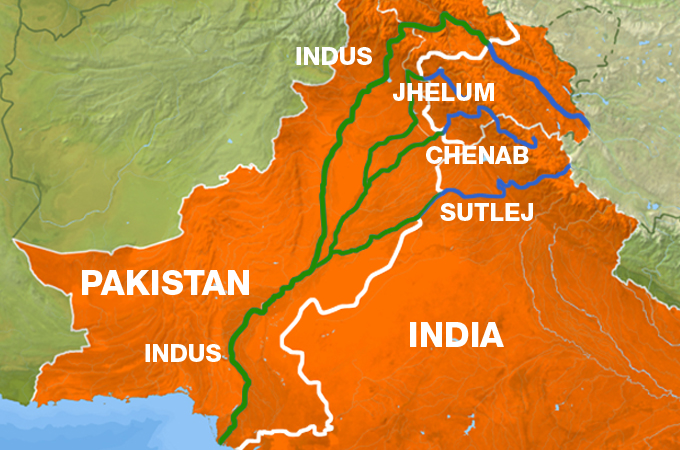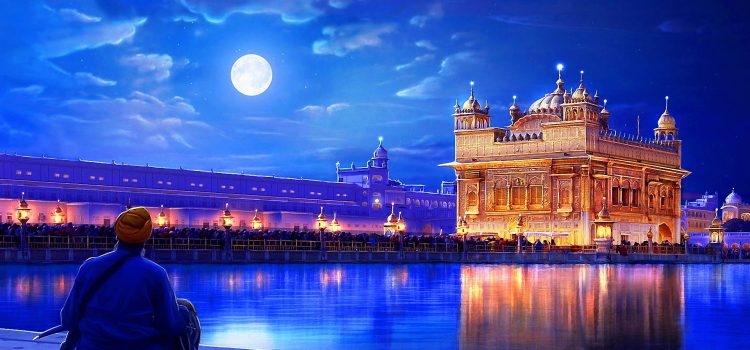A Land Of Five Rivers
Why Travel Punjab
Punjab, the land of five rivers and astounding cultural diversity is renowned for its cuisine, culture and history. The bright green fertile farming land, shimmering waters, skies in various shades of blue give your senses an ever lasting liveliest experience. The magical land of Punjab is home to cheerful, lively, and fun-loving people who welcome you with open arms and a smile on their face. Rainbow tinged turbans worn by cheerful men, vibrantly colored attire, bangles, ribbons, and scarves adorned by women, and bhangra music - all bestows Punjab a colorful and lively culture. The charming cities of the state are dotted with enticing monuments, gurudwaras, sacred shrines, temples, ashrams, wide lakes, museums, and wildlife sanctuaries, which are home to numerous rare species of animals and migratory birds. It is an ideal destination for tourists interested in exploring ancient civilization, rich culture, mouth watering cuisine, and exquisite shopping.

Forged from the Indian half of Punjab province after Partition, Punjab is the homeland of India’s Sikh population. Irrigated by mighty Himalayan rivers such as the Beas, the Ravi and the Sutlej, it is an expanse of fertile land that supplies a bulk of India's demand for wheat and rice, while also doubling as a nerve centre of India's textile and manufacturing industries. A particularly tourist-friendly region, thanks to its strong expatriate connections with the UK and Canada, Punjab provides a wonderful opportunity to go traipsing into the backyards of North India.
"Punjab's position in tourism has improved significantly in the recent past. It has positioned itself as one of the emerging tourist attractions in India offering rich cultural and natural heritage experiences. During 2009, the state was ranked at 28th in terms of arrival of domestic tourists by Ministry of Tourism, Government of India. Punjab, during 2010 graduated ot 14th rank amongst the States of India by Ministry of Tourism , Government of India and Now during 2011 it has furthur emerged as a Tourist Hotspot and attained 12th Rank amongst the States of India in the Publication India Statistics 2011. The Number of Domestic Tourists has almost doubled from 53,69,995 in 2009 to 1,05,83,509 in 2010 and the number increased to 1,64,16,638 in 2011.From economic point of view at this time, tourism sector is an important source of creation of income, employment and regional development. It can act as a key economic driver to boost the economy. For this, the tourism sector needs promotion on commercial scale.

Sikhism (or Sikh religion), founded on the teachings of Guru Nanak Dev and nine successive gurus in fifteenth century Northern
India, is the fifth-largest religion in the world. This system of religious philosophy and expression
has been traditionally known as the Gurmat (literally the counsel of the gurus) or the Sikh Dharma.
Sikhism originated from the word Sikh, which in turn comes from the Sanskrit root sisya meaning "disciple"
or "learner", or siksa meaning "instruction." The principal belief of Sikhism is faith in Waheguru—represented
using the sacred symbol of ek oankar, the Universal God. Sikhism advocates the pursuit of salvation
through disciplined, personal meditation on the name and message of God. A key distinctive feature
of Sikhism is a non-anthropomorphic concept of God, to the extent that one can interpret God as the
Universe itself.Sikhism's traditions and teachings are distinctively associated with the history, society and culture of the
Punjab.

In Sikhism, God -termed Waheguru - is formless, eternal, and unobserved: nirankar, akal, and alakh. The beginning of the first composition of Sikh scripture is the figure "1"—signifying the universality of God. It states that God is omnipresent and infinite, and is signified by the term ek oankar. Sikhs believe that prior to creation, all that existed was God and his hukam (will or order). When God willed, the entire cosmos was created. From these beginnings, God nurtured "enticement and attachment" to maya, or the human perception of reality. While a full understanding of God is beyond human beings, Nanak described God as not wholly unknowable. God is omnipresent (sarav viapak) in all creation and visible everywhere to the spiritually awakened. Nanak stressed that God must be seen from "the inward eye", or the "heart", of a human being: devotees must meditate to progress towards enlightenment. Guru Nanak Dev was the first guru and appointed a disciple as successor. Guru Gobind Singh was the final guru in human form. Before his death, Guru Gobind Singh decreed that the Guru Granth Sahib would be the final and perpetual guru of the Sikhs. Sabb sikkhao ko hukam hai guru manyo granth. English Transliteration : All Sikhs are commanded to take the Granth as Guru.